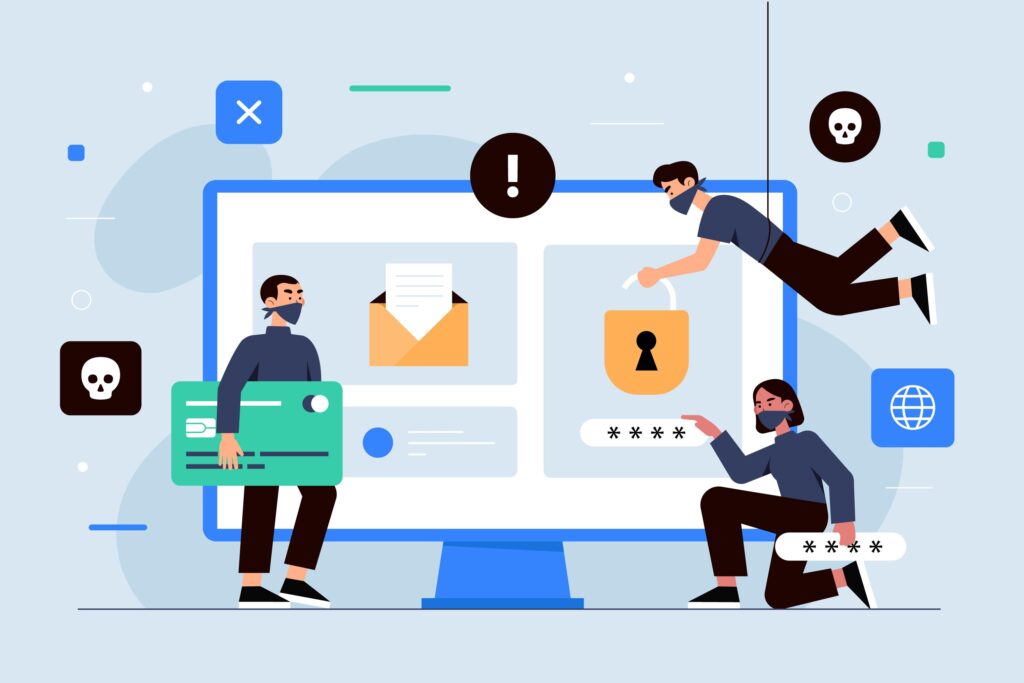Discovering that your email has been hacked can be a distressing experience. Your email account often contains a wealth of personal and sensitive information, making it a valuable target for cybercriminals. However, it’s essential not to panic and instead take immediate steps to secure your email account, mitigate potential damage, and prevent future attacks. In this article, we will guide you through the steps to take if your email has been hacked.

- Change Your Password Immediately
The very first step upon discovering that your email has been compromised is to change your password. Create a strong and unique password that includes a combination of letters, numbers, and symbols. Avoid easily guessable information like birthdays or common words. This new password should be one you haven’t used before for your email account or any other online services.
- Enable Two-Factor Authentication (2FA)
Two-Factor Authentication is an additional layer of security that requires you to provide a secondary verification method (usually a code sent to your phone) to access your email account. Enabling 2FA makes it significantly more challenging for hackers to gain access to your account, even if they know your password. Make sure to activate 2FA as soon as possible.
- Check Your Account Settings
After changing your password and enabling 2FA, review your email account’s settings. Ensure that the hacker hasn’t made any unauthorized changes, such as forwarding your emails to another address or altering your recovery information. Revert any suspicious changes to their original settings.
- Scan for Malware and Viruses
It’s possible that your email account was compromised because malware or a virus infected your device. Perform a comprehensive scan of your computer or mobile device using reliable antivirus and anti-malware software. Remove any threats detected to prevent further compromises.
- Review Sent and Deleted Items
Check your sent and deleted items folders in your email account. Hackers often use compromised accounts to send spam or phishing emails. If you find any suspicious or unfamiliar messages, delete them and notify your contacts that your account was compromised, so they can be cautious of any suspicious emails from your address.
- Change Passwords for Other Accounts
If you have used the same password for your email account on other online services, change the passwords for those accounts immediately. This is because hackers often attempt to access other accounts using the same credentials.
- Report the Incident to Your Email Service Provider
Most email service providers have mechanisms for reporting account compromises. Contact your email service provider’s support team to inform them of the situation. They may be able to assist you further and offer guidance specific to their platform.
- Monitor Your Financial and Personal Accounts
If the compromised email account is associated with any financial or personal accounts, such as online banking or social media, monitor those accounts closely for any suspicious activity. If you notice any unauthorized transactions or changes, report them immediately to the respective service providers and take appropriate actions to secure those accounts.
- Educate Yourself and Others
Take the opportunity to educate yourself about email security and share this knowledge with others. Often, account compromises occur due to phishing scams or weak passwords. Educating yourself and your contacts about these risks can help prevent future incidents.
10. Be Cautious of Phishing Attempts
After a hack, you might become a target for further phishing attempts. Cybercriminals may attempt to trick you into providing sensitive information or clicking on malicious links. Be extremely cautious when receiving unsolicited emails or messages, especially those asking for personal information or financial details.
11. Consider Legal Action
If the hacker has caused significant harm or engaged in criminal activities using your account, you may want to consider involving law enforcement or legal authorities. They can investigate the situation and take appropriate actions against the perpetrator.
12. Prevent Future Hacks
To prevent future email hacks, maintain good cybersecurity hygiene. Use strong, unique passwords for your accounts, regularly update your software, and be cautious when clicking on links or downloading attachments from unknown sources. Continue to monitor your accounts for any suspicious activity.
Conclusion
Discovering that your email has been hacked can be unsettling, but it’s essential to act swiftly and follow the steps outlined in this article. Changing your password, enabling 2FA, and reviewing your account settings are immediate actions to secure your email account. Additionally, scanning for malware, monitoring other accounts, and reporting the incident to your email service provider are crucial steps in mitigating the impact of the hack. Remember, email security is an ongoing effort, and staying vigilant is key to preventing future compromises.